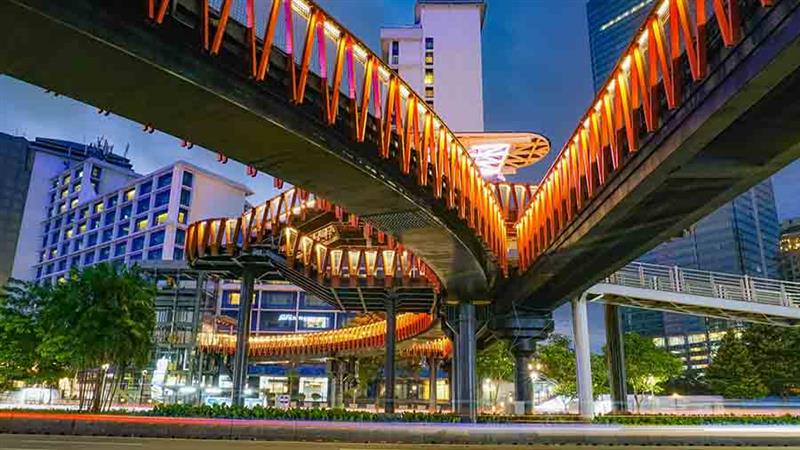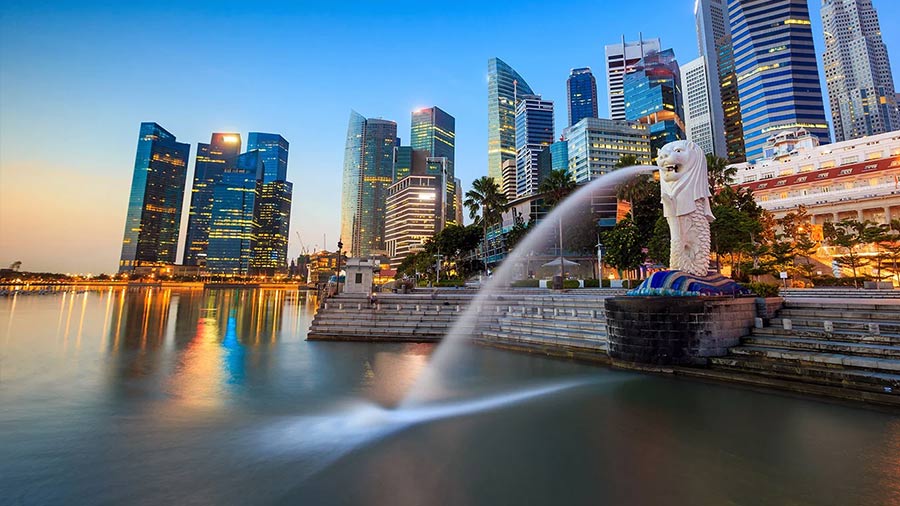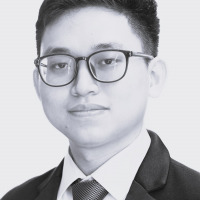Singapore has one of the world’s most robust legal frameworks for intellectual property (IP).
The country’s IP framework is comprehensive and effectively safeguards the various forms of IP – patents, trademarks, copyrights, and trade secrets. The Intellectual Property Office of Singapore (IPOS) – a statutory board under Singapore’s Ministry of Law – oversees IP protection in the country. IPOS has established a reputation for efficiency and reliability in helping businesses manage and protect their IP assets.
In this article, we discuss the types of intellectual property that are protected in Singapore and the associated procedural formalities.
Trademarks
A trademark is a sign used by a business to distinguish its goods or services from those of other businesses. The sign can be a letter, number, symbol, word, shape, color, or a combination of these.
While it is not mandatory to register a trademark to use it, opting for registration does offer certain advantages. These benefits include the ability to prevent unauthorized usage of the trademark by third parties without the owner’s consent, as well as safeguarding against the registration of a similar trademark in Singapore at a later stage. The Registry of Trademarks in Singapore is responsible for handling trademark filings within the country.
A registered trademark is protected for 10 years from the date of filing in Singapore. This can be renewed upon expiry.
Marks that are considered contrary to public policy and morality cannot be registered. This is also the same for marks that attempt to deceive the public, such as misrepresenting the origins of the goods or services.
How to register a trademark in Singapore?
IPOS provides an integrated e-services portal for filing IP applications and transactions in Singapore.
Search and inquiry
Before applying for the trademark, the applicant should conduct a search of existing trademarks in the Registry of Trademarks registry.
Filing the application
The applicant needs to fill in a TM4 form, which must contain the following information:
- Name and address of the applicant;
- A clear graphical representation of the mark;
- The list of goods and services being sought for registration; and
- A declaration of intent to use the trademark.
There is also a fee, which is subject to goods and sales tax.
Processing time
If the application did not face any objections, the processing time to register a trademark will take around 12 months. This will take longer if the application faces objections.
Formalities check
The Registry of Trademarks will undertake formalities check upon receiving the application. This entails checking if the application meets the minimum filing requirements.
If the minimum filing requirements are met, then a filing date is allocated to the applicant. Otherwise, a deficiency letter is sent to the applicant asking them to fix the deficiencies in their application.
Search
After the formalities check, the Registry of Trademarks will conduct a search check to ensure the application is not identical to an already registered trademark.
Examination
The application will then be examined to determine if the mark is in accordance with Singapore law. If the examiner has objections to the mark, the applicant will be given a specific period to respond to the objections.
Publication
If there are no objections to the application, the mark will be published in the Trademarks Journal for two months. During this period, any party can oppose its registration.
Opposition
Any third party can oppose the registration of the mark. This should be on valid grounds as under Singapore’s trademark law. A hearing will then be organized in which both parties will present evidence for their case.
Registration
If there is no opposition, then the trademark will be registered, and a certificate issued. The trademark is valid for 10 years.
Patents
Patents are granted to the owner of an invention. This can take the form of new products or the technical improvements of an existing technology or process. The Registry of Patents processes patent filings in Singapore.
There are several routes to applying for a patent in Singapore – the domestic route through IPOS, or through the PCT National Phase Entry Route, which facilitates patent protection simultaneously in several countries through one application.
Once granted, the patent is protected for 20 years from the date of filing.
How to apply for a patent in Singapore?
Checking the registration criteria
Before applying for the patent, the applicant should check if they fulfill the registration criteria.
- Is the invention patentable?
- Has the invention been disclosed to anyone else?
- Are there existing similar inventions?
- Is the applicant entitled to register for the patent?
The domestic route
Depending on the complexity of the invention, it can take about two to four years for a patent to be granted. However, if the application faces no objections and the specified time limits are adhered to, the patent can be granted within 12 months of filing.
The applicant must make a request for a grant of the patent, accompanied by paying the prescribed fee. The applicant needs to prepare a technical and accurate description of the invention. It is vital that the application is technically and legally accurate and should include drawings or an abstract of the invention. Applicants must complete Patents Form 1 as part of the procedure.
Date of filing notification
Once a request for a grant of patent is filed, a Formalities Officer will check the details provided, such as the description of the invention, the completion of Patent Form 1, and whether the applicants for the patent are clearly defined, before allocating a date of filing.
The date of filing will be the earliest date when all the documents are deemed to satisfy the requirements.
Preliminary examination
The Formalities Officer will then check the following documentation as part of the preliminary examination:
- Completion of Patent Form 1;
- A valid Singapore address for service;
- Names and addresses of the applicants;
- Completed drawings;
- The description and abstract do not contain drawings; and
- Documents are numbered properly, among others.
Publication
If the patent has been awarded a date of filing, it can be published in the Patents Journal for 18 months.
Search and examination
After publication, the application must undergo the search and examination process to determine if the invention can be patented in Singapore.
The search process involves a worldwide search of the materials that are relevant to the subject of the invention.
Following that, the examination process entails the Patent Examiner conducting an investigation to determine whether the invention meets the criteria of novelty, involves an inventive step, and is capable of being implemented on an industrial scale.
Notice of eligibility of grant
If there are no objections to the application, IPOS issues a Notice of Eligibility to Proceed to Grant. The applicant has two months from the date of issue of this notice to pay the grant fee and comply with any grant formalities.
Grant of patent
The applicant must request for the issuance of the Certificate of Grant within two months after the issuance of the Notice of Eligibility to Proceed to Grant. If the applicant fails to file the request, the application will be deemed abandoned and the Registrar will not issue the Certificate of Grant.
Copyrights
No registration is required to receive copyright protection in Singapore since the person is automatically afforded copyright protection as soon as they express their work in tangible form.
The following works are protected under Singapore’s Copyright Law:
- Films;
- Sound recording;
- Artistic works such as drawings, photographs, craftsmanship, and paintings;
- Musical works that are in a written format;
- Literary works such as books, journals;
- Performances; and
- Television and radio broadcasts.
How is copyright protection obtained?
To be afforded copyright protection, the person must have ‘a connecting factor’ with Singapore. This can be established in the following ways:
- Nationality – the person is a Singaporean citizen;
- Publication – the content was first published in Singapore; or
- Residence – the person was a Singaporean resident when the content was created.
Copyright expiration
The exact expiration period of a copyright depends on the type of content. The copyright of works with identified authors lasts the life of the author plus 70 years under specific scenarios. This is the same for artistic works (except for engravings and photographs).
For authorial works where the author is not identified, the copyright expires 70 years after the content was first made available to the public.
Copyright infringement
A copyright is infringed when the content is used without the author’s authorization. The infringements can occur through the following:
- Authorizing infringement – authorizing the doing of an act that falls within the owner’s rights;
- Primary infringement – doing an act that falls within the owner’s rights; or
- Secondary or other types of infringements – unauthorized commercial dealings of the copyrighted content.
Criminal liability
Copyright infringement can result in criminal liability, ranging from injunctions to damages (monetary compensation).
Statutory damages are capped at S$10,000 (US$7,454) for each copyright, subject to a maximum of S$200,000 (US$149,000) for all the works.
There are also criminal offenses related to copyright infringement, which is punishable with imprisonment of between two to five years, and a fine of between S$40,000 (US$29,818) and S$200,000 (US$149,000).
Fast Track Patent Program
The Intellectual Property Office of Singapore (IPOS) launched the SG Patent Fast track Program on May 4, 2020, which aims to expedite the application-to-grant process of patents in all technology fields to six months, compared to the typical duration of two years.
This was originally a two-year program and was extended to April 30, 2024. It replaces the FinTech Fast Track and Accelerated Initiative for Artificial Intelligence programs.
There is no additional fee required to participate in the program; however, it is currently only available to process five applications per month on a first-come, first-serve basis with IPOS also imposing a limit of 10 requests per year for each entity, whether they are corporates or individuals.
The program will benefit innovators who develop products or solutions with short lead times to market or short product lifecycles. Furthermore, the positive examination results issued by IPOS can be used to leverage their application to international patent examinations, such as to the ASEAN Patent Examination Co-operation (ASPEC).
How do you qualify for the program?
There are several criteria applicants need to fulfil in order to qualify for the program:
- The application must be filed in Singapore and must not have priority claim;
- The application must contain at least 20 or fewer claims; and
- The request is within the cap number of requests of five per month and 10 per year per entity.
The monthly cap is reset on the first day of the new month with any unutilized requests rolled over to the next month, subject to a maximum of 10 per month.
How do you file a patent?
The applicant will need to fill out Patents Form 1 (request for grant of patent) and Patents Form 11 (request for search and examination report) using the IP2SG online portal by IPOS.
In addition to Patents Forms 1 and 11, the applicant must attach another document tagged as FastTrack. The FastTrack document should contain a cover letter stating the reason(s) for requesting the acceleration of the patent as well as the technology field that the invention belongs to. Some examples for requesting the acceleration process include the invention having a short product lifecycle or a technology that has an environmental or health cause.
Once the application has been submitted to and reviewed by IPOS, the organization will issue a Formalities Examination Report (FER). IPOS will inform the applicant if they have been successful in accelerating their grant process.
The applicant must report within two weeks upon receiving the FER and within two months upon receipt of the written opinion from IPOS.
What if the cap on the SG Fast Track is reached for the month?
If the cap for the month for the SG Fast Track has been filled, the applicant will automatically be moved to the 12-Month File-to-Grant program. Through this program, applicants can obtain a Singapore patent grant within 12 months from the filing of the application.
Alternatively, applicants can decide not to join the 12-month program and choose to re-apply through the SG Fast Track system in the following month.
An important steppingstone to apply for international patents
Due to Singapore’s robust intellectual property (IP) system and IPOS’ global reputation, an IPOS patent report can support innovators in their quest to process their patents internationally, such as in Japan, the USA, China, and Europe. Innovators can also benefit from IPOS’ Patent Prosecution Highway (PPH) program, whereby the examination process of a patent application to one IP office can be accelerated by referencing the results from another IP office.






















